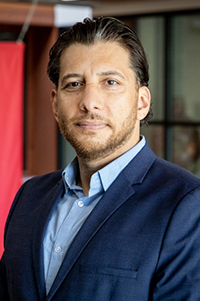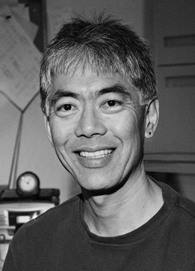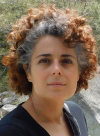CRPBIS Learning Lab
Supported by the Wisconsin Department of Public Instruction, Learning Lab in Madison Metropolitan School District (MMSD) took place during the 2011-2013 academic years. The CRPBIS Team worked collaboratively with one elementary school, one middle school, and one high school within the very large MMSD. We finished designing new, culturally responsive school discipline systems in the middle and high school.
CRPBIS Principal Investigator
 Aydin Bal, Ph.D.
Aydin Bal, Ph.D.
Aydin Bal is a professor of education at the University of Wisconsin—Madison. His research focuses on the interplay between culture, learning, and mental health across local and global education systems. Dr. Bal examines the social justice issues in education, family-school-community-
university collaboration, and systemic transformation. He has developed a Culturally Responsive Positive Behavioral Interventions and Supports framework and the Learning Lab methodology. In Learning Labs, local stakeholders (students, families, educators, policy makers, and community representatives), especially those from historically marginalized communities, collectively design and
implement culturally responsive behavioral support systems. As a practitioner and researcher in schools, hospitals, and prisons, Dr. Bal has worked with youth from minoritized communities experiencing academic and behavioral problems from the United States, Turkey, South Sudan, Syria, the Russian Federation, one Ojibwe Nation, and Brazil. Dr. Bal was the recipient of the 2019 American Educational Research Association (AERA) Scholars of Color Early Career Contribution Award.
Project Consultants
 Alfredo Artiles, Ph.D.
Alfredo Artiles, Ph.D.
Alfredo J. Artiles is Lee L. Jacks Professor of Education at Stanford University. He is the director of the Stanford Center for Opportunity Policy in Education and director of research at the Center for Comparative Studies in Race & Ethnicity. His scholarship examines cultural-historical dimensions of disability and inclusive education and their implications for policy and practice. Artiles is an elected member of the National Academy of Education, a fellow of AERA and was a CASBS resident fellow. He was elected AERA VP to lead its Social Context of Education Division. He edits the book series Disability, Culture, & Equity (Teachers College Press). Recent publications include Language, learning and disability in the education of young bilingual children (2021); Beyond compliance in discipline racial disparities in special education: Organizational and contextual influences in a suburban district (in press, Sociology of Education) (with Voulgarides, Aylward, Tefera, Alvarado, & Noguera); Wrestling with the paradoxes of equity: A cultural-historical re-framing of technical assistance interventions (2020, Multiple Voices) (with T. Gonzalez); Re-envisioning equity research: Disability identification disparities as a case in point (2019, Educational Researcher).
 George Sugai, Ph.D.
George Sugai, Ph.D.
Dr. George Sugai is Professor and Carole J. Neag Endowed Chair in the Neag School of Education at the University of Connecticut. His research and practice interests include school-wide positive behavior support, behavioral disorders, applied behavior analysis, organizational management, and classroom and behavior management, and school discipline. He has been a classroom teacher, program director, personnel preparer, and applied researcher. Currently, he is co-director of the OSEP Center on Positive Behavioral Interventions and Supports and director of the UConn Center on Behavioral Education and Research.
Advisory Board Members
 Gloria Ladson-Billings
Gloria Ladson-Billings
Gloria Ladson-Billings is the Kellner Family Chair in Urban Education in the Department of Curriculum & Instruction and Faculty Affiliate in the Departments of Educational Policy Studies, Educational Leadership and Policy Analysis, and Afro American Studies at the University of Wisconsin-Madison. Ladson-Billings was the 2005-2006 president of the American Educational Research Association (AERA). Author and editor of 8 books and over 100 journal articles and book chapters, Ladson-Billings is winner of numerous scholarly awards and honorary degrees.
 David Fernandez
David Fernandez
David is a Liberal Arts Transfer sophomore at Madison College hoping to transfer to UW-Madison. His dream is to study Law and use the knowledge and skills to promote the fair, equal and lawful treatment of all people. He is a strong advocate for more direct influence on the decisions that affect the financial, academic and overall every day lives of students here at Madison College. He is the Vice President of Legislative Affairs of the Student Government for the 2014 Fall academic year at Madison College. Helping people is one of his passions; that's why representing students is his greatest honor since he is student himself. He also represent 400,000 students at the state-level Wisconsin Student Government, where he is the governor for Madison College. He helps to advocate and lobby the Wisconsin legislature for more funding for technical colleges and more financial aid for students.
Cheryl Funmaker
Dr. Funmaker has had the pleasure to serve in the field of American Indian education for over 25 years. She also has had the privilege to work for her tribe, the Ho-Chunk Nation, during this time. Throughout these years she found herself concerned with persistent, evolving, and enduring equity issues that have continued to impact her students. She found herself wondering, how do educational constructs such as learning, disability, and giftedness, interact with demographic markers like race, socioeconomic status, gender, and urbanicity? Following a lengthy hiatus from academia, she returned, and continues to pursue these questions during the course of her studies. She also has continued her study of cultural responsitivity.
Research Partners
 Yrjö Engeström
Yrjö Engeström
Yrjö Engeström is Professor Emeritus of Adult Education and Research Director at University of Helsinki and Professor Emeritus of Communication at University of California, San Diego. He is Director of the Center for Research on Activity, Development and Learning (CRADLE). In his work Engeström applies and develops cultural-historical activity theory, a tradition based on Marxist dialectics, as a framework for the study of transformations in educational settings, work activities and communities. He is widely known for his theory of expansive learning and for the methodology of formative interventions, including the Change Laboratory method. Engeström’s most recent books are From Teams to Knots: Activity-Theoretical Studies of Collaboration and Learning at Work (2008), Learning by Expanding: An Activity-Theoretical Approach to Developmental Research, 2nd Edition (2015), and Studies in Expansive Learning: Learning What Is Not Yet There (2016), all published by Cambridge University Press.
 Annalisa Sannino
Annalisa Sannino
Annalisa Sannino holds a Finnish Academy Research Fellowship at the Center for Research on Activity, Development and Learning (CRADLE) in the Faculty of Educational Sciences at University of Helsinki, Finland. She is visiting professor at Rhodes University, South Africa and at University West, Sweden. Her research is primarily focused on developing an activity-centered educational and dialectical theory of transformative agency. Her work demonstrates how transformative agency is enacted and how it can be identified, supported and enhanced within communities, educational settings and work activities by means of formative interventions.
From Intervention to Innovation
